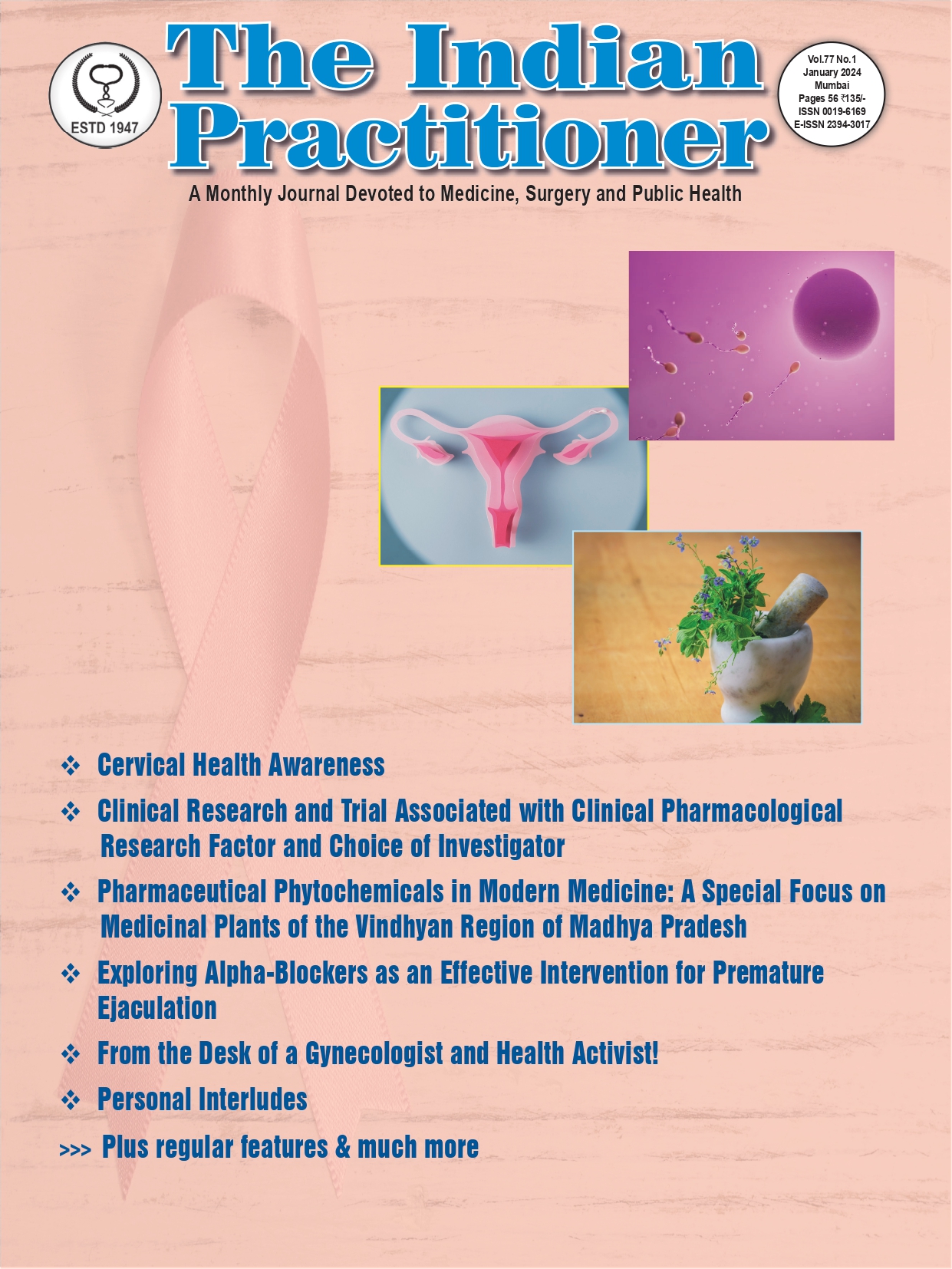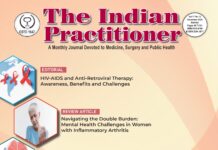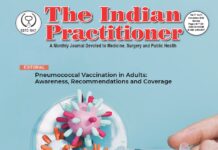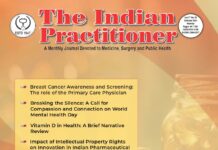 Editorial
Editorial
Cervical Health Awareness
– Dr. R. Kishore Kumar
Cervical cancer is one of the most common cancers in women – and is the biggest killer of women in their childbearing age. There is enough evidence that most cervical cancers are caused by oncogenic human papillomaviruses (HPV). Currently, some vaccines can prevent the infection and development of cervical cancer but need to be given to all children between the ages of 9 and 14 years. Australia being one of the earliest countries to introduce HPV vaccine routinely for their population, is on the verge of declaring the whole continent HPV free within the next decade.
Special Article
Clinical Research and Trial Associated with Clinical Pharmacological Research Factor and Choice of Investigator– Dr. Mohammad Nadeem Khan, Dr. Ashok D. Kumar, Mohammad Rafi
Meeting the objectives of investigations with investigated medicinal products and the speed with which this is done, are influenced in a major way by the independent physician /clinicians undertaking the work. The nature of the proposed study will significantly influence the professional and scientific qualifications required of the investigator, as well as the patient population and facilities needed. Personal attributes are crucial requirements for individuals involved in drug trials or drug development. Numerous factors contribute to the selection of a specific investigator.
Review Article
Pharmaceutical Phytochemicals in Modern Medicine: A Special Focus on Medicinal
Plants of the Vindhyan Region of Madhya Pradesh – Dr. Ravindran Chetambath, Sweta Pandey, Shankhpani Mahapatra, Adesh Patidar, Rahul Mishra, Manoj Indurkar, Sanjay Kumar Pandey
Since ancient times, medicinal plants have been the main source of medicine in India, and today they are becoming popular throughout developed nations. In addition, they are also important to tribal and rural communities, especially in developing countries with remote areas. Human suffering can be alleviated by these plants. Many traditional medicinal uses of plants growing around Indian ethnic and rural communities have been preserved. A variety of common diseases and conditions are treated with this knowledge, which is passed down through generations through word of mouth. The purity of the drug is maintained by the indigenous method of preparation.
Clinical Practice
Exploring Alpha-Blockers as an Effective Intervention for Premature Ejaculation
– Dr. Manish Maladkar, Sudhir Awate, Dr. Prerna Bramhe
Premature ejaculation (PE) is one of the most significant sexual problems. The global prevalence of premature ejaculation is estimated to range between 20% and 40%. PE can lead to significant psychological distress, poor self-esteem, anxiety, erectile dysfunction, decreased libido, and poor interpersonal relationships. PE management includes behavioral/psychotherapy and medication, with SSRIs like Dapoxetine and Paroxetine as standard treatments.
Views & Experiences
From the Desk of a Gynecologist and Health Activist! –Dr. Reena Wani, Dr. Priya H. Manihar
WHO has defined health as a state of complete physical, mental, and social well-being, not merely the absence of disease.[1] We gynecologists are often the primary health care providers for women, particularly in the reproductive age group. Reproductive health is defined as a state of physical, mental, and social well-being in all matters relating to the reproductive system, at all stages of life. Good reproductive health implies that people can have a satisfying and safe sex life, the capability to reproduce, and the freedom to decide if, when, and how often to do so.
Personal Interludes
Nothing is Impossible!!
– Ravindran Chetambath
A comprehensive understanding of medicine is always suspect without a firm grounding in the history of medicine in the same way historical expertise is always suspect without an insight into the history of medical science. When I made this observation at the British Society of History of Medicine way back in 1985, it was seen by many as distinctly quirky. The scepticism continued for another two decades until the superlatively erudite Roy Porter started publishing his classical papers. I am privileged to have recommended his name for the fellowship of the Royal Historical Society.
Column
William Harvey’s Pioneering Work that Leads to Our Understanding of Coronary Disorders
– Dr. Ashoka Jahnavi Prasad
Physicians and surgeons in Scotland, following in the footsteps of William Harvey, the founder of medical science, have played a major role in identifying the causes of blocked circulation. Their successors still have a major task to apply evidence-based prevention and treatment equally to an ill-divided Scotland and an ill-divided world.William Harvey, in his book De Motu Cordis (1628), elegantly demonstrated that the heart circulates blood around the body.


























